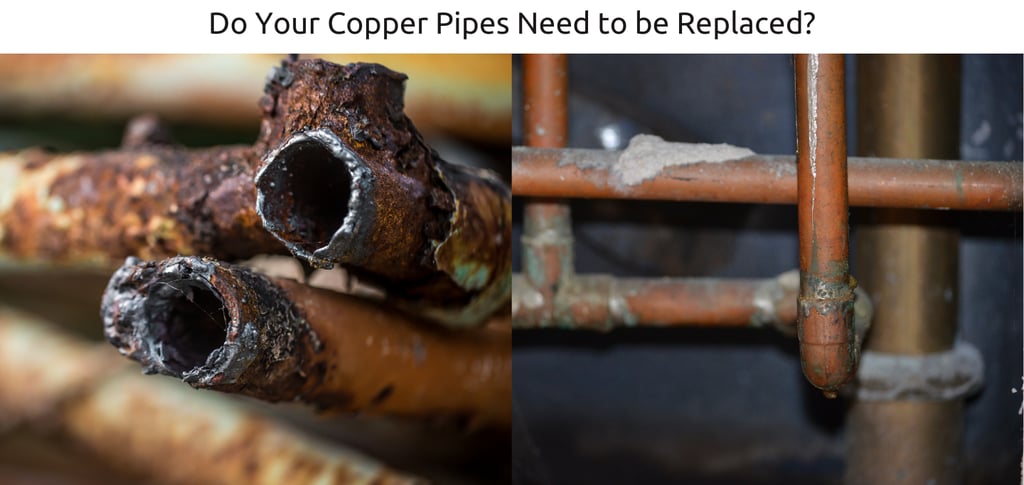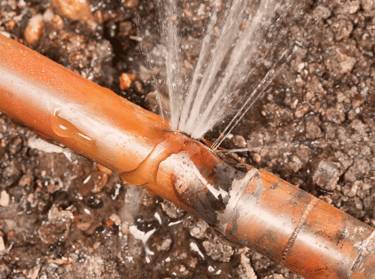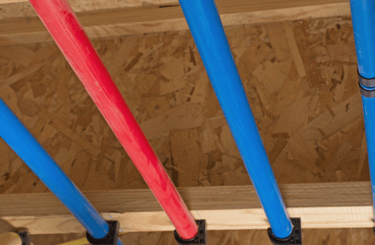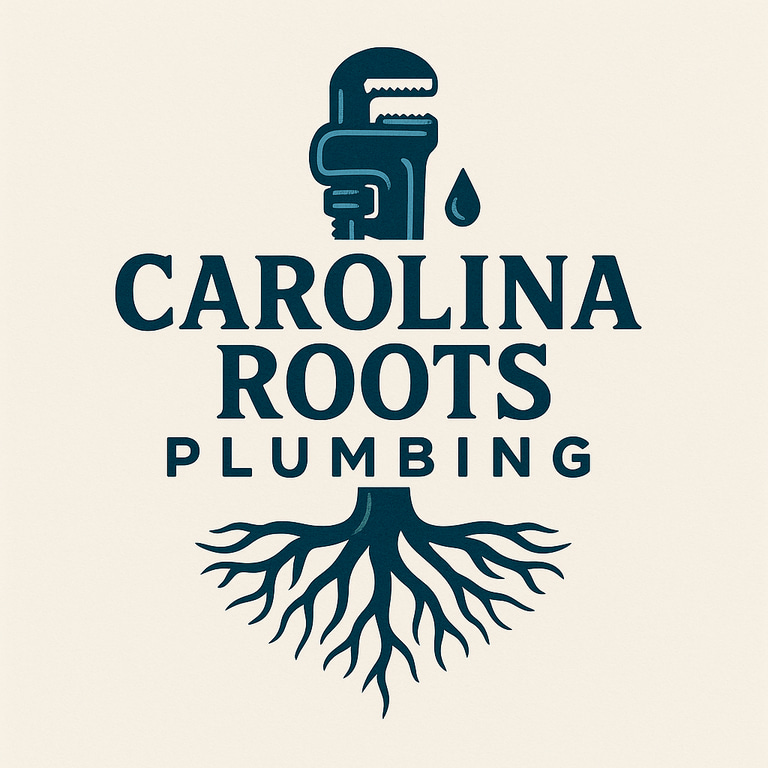Copper Pipes and Plumbing
Copper pipes can last decades, but even the toughest plumbing wears down over time. From leaks and low water pressure to discolored water or visible corrosion, the warning signs shouldn’t be ignored. Learn when to repair, when to repipe, and how Carolina Roots Plumbing can help keep your system reliable for years to come.
8/18/2025


When to Replace Copper Pipes in Your Home Plumbing System
Copper has been the gold standard of residential plumbing for decades. Known for its durability, resistance to bacteria, and reliability, copper piping can last half a century or longer. But like all parts of your home, copper pipes have a lifespan. Over time, they can wear down, corrode, or develop leaks that disrupt your plumbing system and even damage your home.
So how do you know when it’s time to replace your copper pipes? In this guide, we’ll cover the lifespan of copper plumbing, the key warning signs it’s time to repipe, the causes of copper pipe failure, and the alternatives available today.
How Long Do Copper Pipes Last?
Copper is prized for longevity. In ideal conditions, copper pipes can last 50–70 years, with some systems lasting close to a century. The exact lifespan depends on:
Water quality – Hard water, high acidity, or excess minerals can shorten lifespan.
Pipe thickness – Thicker Type L or Type K copper lasts longer than thinner Type M.
Installation quality – Proper soldering, grounding, and support extend life.
Environmental factors – Soil chemistry and exposure to oxygen or corrosive materials can accelerate wear.
While this sounds impressive, no material lasts forever. Even the best copper plumbing will eventually need attention.
Signs It’s Time to Replace Copper Pipes
1. Discolored or Rusty Water
If your tap water has a brown, red, or green tint, your copper pipes may be corroding from the inside. Rusty or metallic-tasting water is a strong indicator that the protective layer inside your pipes has worn away.
2. Frequent Leaks or Pinholes
Pinholes are tiny perforations caused by electrochemical corrosion. Even small leaks can lead to water damage, mold growth, or costly utility bills. If you’re repairing leaks more than once every couple of years, replacement may be more cost-effective.
3. Low Water Pressure
Over time, mineral deposits or corrosion can build up inside copper pipes, restricting water flow. If your shower feels weaker or faucets take longer to fill a sink, pipe deterioration could be the cause.
4. Green Corrosion on Exterior Pipes
A green patina on visible copper is more than just a cosmetic issue—it signals oxidation. This often happens when pipes sweat or are exposed to high humidity.
5. Strange Noises
Knocking, clanging, or gurgling sounds could mean deteriorating pipes or water hammer problems. These noises sometimes occur when aging copper pipes lose their stability or when air gets trapped in corroded sections.
6. Visible Damage
Cracks, bulges, or warping on exposed copper are red flags.
Even if they haven’t caused leaks yet, the structural integrity of
the pipe has been compromised.
7. Your Home’s Age
If your home is 50+ years old and still has its original plumbing, replacement is worth considering—even before leaks start. Preventative repiping can save thousands in water damage repairs later.
Why Copper Pipes Fail
Even though copper is durable, several factors accelerate its decline:
Corrosive water chemistry (low pH, high chlorine content, or high mineral levels).
Poor electrical grounding, which causes electrolysis and pinholes.
High water velocity, which wears down pipe walls faster.
Constant pressure changes, which stress the pipe walls.
Exterior exposure, like pipes in damp crawl spaces or uninsulated areas.
Repair or Replace?
It’s natural to want to fix a leaking section of pipe instead of replacing your whole plumbing system. But there are times when replacement is the smarter investment.
Repair is reasonable when:
You have an isolated leak and pipes are under 20–25 years old.
Visible corrosion is minimal.
Your plumbing system has no history of recurring issues.
Replacement is better when:
Your pipes are 40–50+ years old.
Leaks happen in multiple places.
Water discoloration is persistent.
You’re remodeling and already have walls open.
What Are the Alternatives to Copper?
While copper is still used, many homeowners today consider PEX (cross-linked polyethylene) as a modern alternative.
PEX Advantages: Flexible, resistant to corrosion, faster
to install, and often more affordable.PEX Disadvantages: Can be vulnerable to UV light and
may not last as long as copper under extreme heat.
Some homeowners prefer to repipe with copper for longevity and
resale value, while others choose PEX for cost savings. In some
cases, a hybrid system is installed to balance both benefits.
When Replacement Is Urgent
There are situations where waiting could cause costly damage:
Persistent leaks that threaten drywall, flooring, or foundations.
Mold growth from unnoticed leaks.
High water bills due to hidden pipe failures.
Major renovation projects (bathroom or kitchen remodels) where replacing plumbing now prevents headaches later.
If you notice any of these urgent signs, contact a plumber immediately for an inspection.
How a Plumber Can Help
Professional plumbers use leak detection tools, camera inspections, and water tests to evaluate pipe condition. A qualified plumber will:
Assess whether isolated repair or full replacement is best.
Explain material options (copper vs. PEX).
Provide cost estimates for repairs or repiping.
Ensure your home’s plumbing meets modern codes.
At Carolina Roots Plumbing, we specialize in repiping and copper pipe replacement. Whether your pipes need a minor fix or a complete overhaul, our team ensures your plumbing system works reliably for years to come.
Copper pipes are built to last, but they aren’t indestructible. Knowing the signs of aging plumbing helps homeowners avoid costly damage and unexpected failures. If your pipes are reaching the end of their lifespan—or you’re noticing leaks, discoloration, or corrosion—it may be time to consider a replacement.
Whether you choose copper or explore modern options like PEX, working with a professional plumber ensures your system is reliable, efficient, and built to last.
👉 If you’re worried about the condition of your pipes, contact Carolina Roots Plumbing today for an inspection and honest recommendation.




Contact us today
3903 Bell St. NW Wilson, North Carolina 27896
© 2026. All rights reserved.
License #37999
Website and Marketing Provided by:
Root and Rise Marketing, NC.


